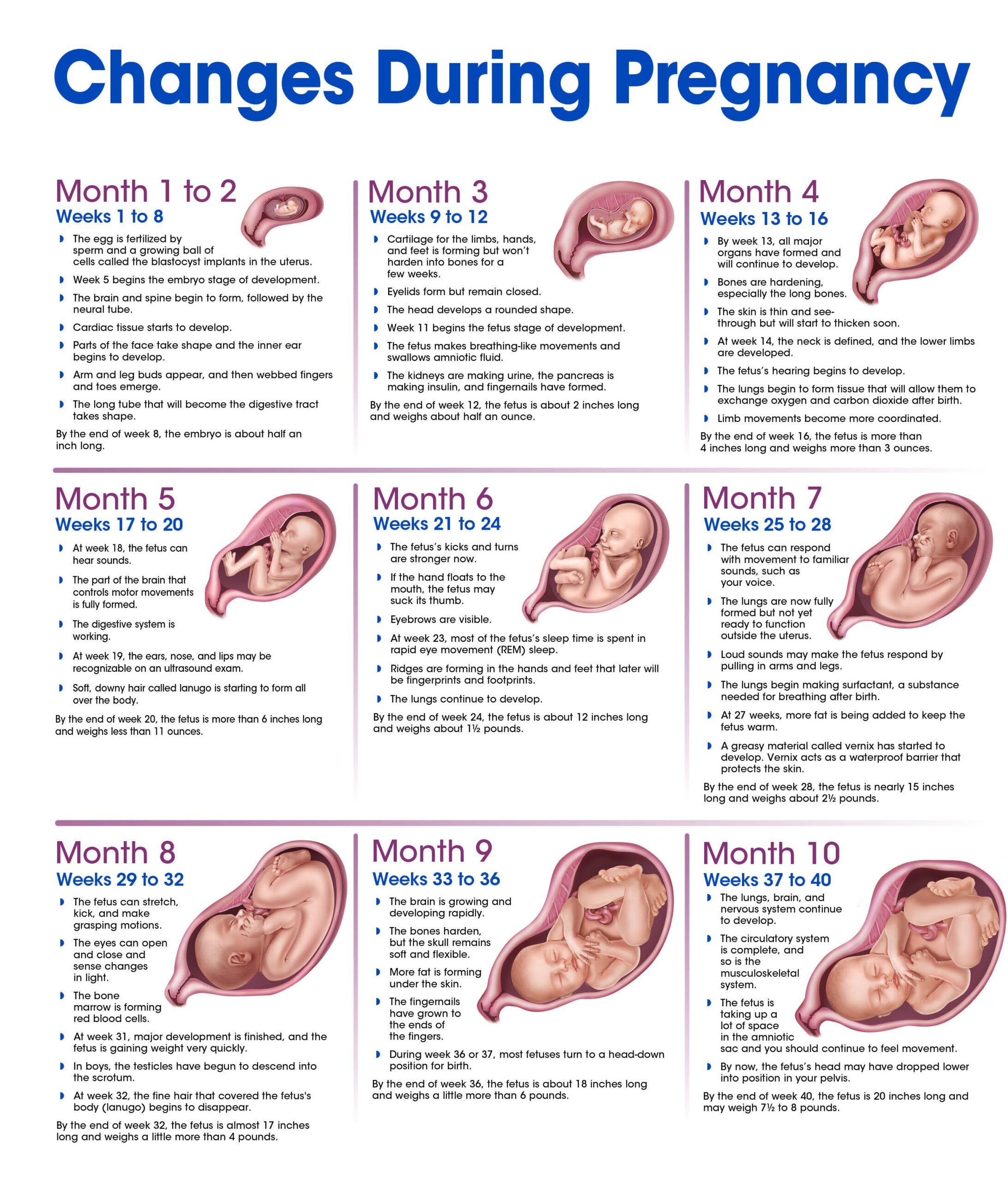Your Pregnancy Journey

“As women embark on the incredible journey of pregnancy, each stage brings its own set of joys, challenges, and milestones,” says Dr. Natalie Howard, MD, obstetrician and gynecologist. “From the discovery of a positive pregnancy test to the awe-inspiring moments of feeling the baby’s first kicks, pregnancy is a time of unparalleled wonder and anticipation.”
Prenatal care plays a crucial role throughout the trimesters in ensuring the health and well-being of both mother and baby. Regular check-ups, nutritional guidance, and screenings are essential components of prenatal care, providing expectant mothers with the support and resources they need to navigate the challenges of pregnancy and childbirth.
First Trimester (Weeks 1-12): The Foundation of Pregnancy
“As the foundation of pregnancy, the first trimester is a time of significant changes and adjustments,” says Dr. Natalie Howard, MD. “It’s when the body begins the remarkable process of nurturing a new life, laying the groundwork for the miraculous journey ahead.”
- Physical Changes: During the first trimester, the body undergoes significant changes to accommodate the growing fetus. Women may experience symptoms such as morning sickness, fatigue, breast tenderness, and frequent urination.
- Fetal Development: In the early weeks, the fertilized egg implants itself in the uterus and begins to develop into an embryo. By the end of the first trimester, major organs and body systems, including the heart, brain, and limbs, have started to form.
- Emotional Rollercoaster: Hormonal changes during the first trimester can lead to mood swings, anxiety, and heightened emotions. It’s essential for expectant mothers to prioritize self-care and seek support from loved ones.
Second Trimester (Weeks 13-27): Embracing Growth and Milestones
“The second trimester is a time of embracing growth and celebrating milestones,” says Dr. Natalie Howard, MD. “It’s when many women experience relief from early pregnancy symptoms and begin to marvel at the miraculous changes taking place within their bodies.”
- Physical Changes: The second trimester is often referred to as the “honeymoon period” of pregnancy, as many women experience relief from early pregnancy symptoms. The abdomen begins to expand as the uterus grows to accommodate the developing fetus.
- Fetal Development: During the second trimester, the fetus undergoes rapid growth and development. Facial features become more defined, and expectant mothers may start to feel the baby’s movements, known as “quickening,” for the first time.
- Preparing for Parenthood: As the pregnancy progresses, expectant parents may begin to prepare for the arrival of their baby by setting up the nursery, attending childbirth classes, and discussing birth plans with healthcare providers.
Third Trimester (Weeks 28-Birth): Nearing the Finish Line
“In the final trimester, anticipation builds as expectant mothers approach the finish line of pregnancy,” says Dr. Natalie Howard, MD. “It’s a time of readiness and preparation as the body and mind gear up for the momentous occasion of childbirth.”
- Physical Changes: In the final trimester, the baby continues to grow rapidly, placing increased pressure on the mother’s organs and leading to discomfort such as back pain, swelling, and difficulty sleeping. Braxton Hicks contractions, also known as “practice contractions,” may become more frequent as the body prepares for labor.
- Fetal Development: The third trimester is characterized by the final stages of fetal development, including the maturation of the lungs and the accumulation of fat stores to regulate body temperature. The baby’s movements may become more pronounced as space in the uterus becomes limited.
- Preparing for Birth: Expectant mothers use the third trimester to finalize birth plans, discuss pain management options with their healthcare providers, and prepare emotionally and physically for childbirth. It’s also essential to monitor fetal movements and report any changes or concerns to healthcare providers promptly.
By understanding the stages of pregnancy and what to expect during each trimester, expectant mothers can approach this journey with confidence and preparation. Regular prenatal care, healthy lifestyle choices, and support from loved ones are essential components of a safe and fulfilling pregnancy journey.

About Dr. Natalie Howard, MD:
Dr. Howard is an obstetrician and gynecologist with a special interest in high-risk obstetrics, robotic gynecologic surgery, and menopause medicine. She completed her residency at Creighton University in Omaha and is board-eligible in the American Board of Obstetricians and Gynecologists. Dr. Howard is dedicated to providing compassionate and personalized care to women throughout all stages of life, and she finds immense joy in being a part of the vibrant community of women in Wyoming.
